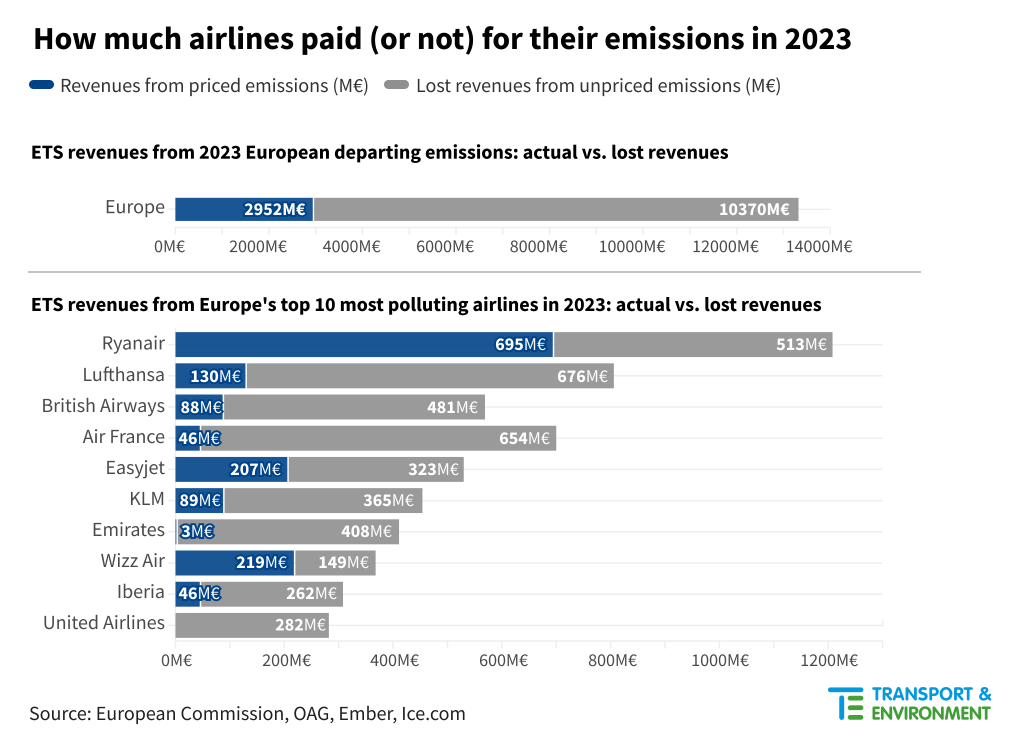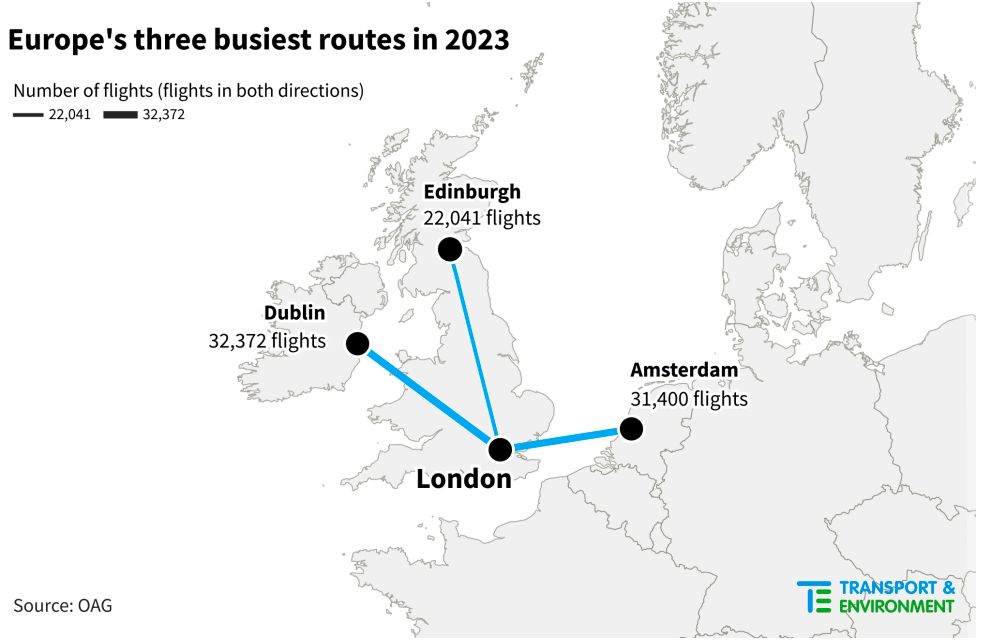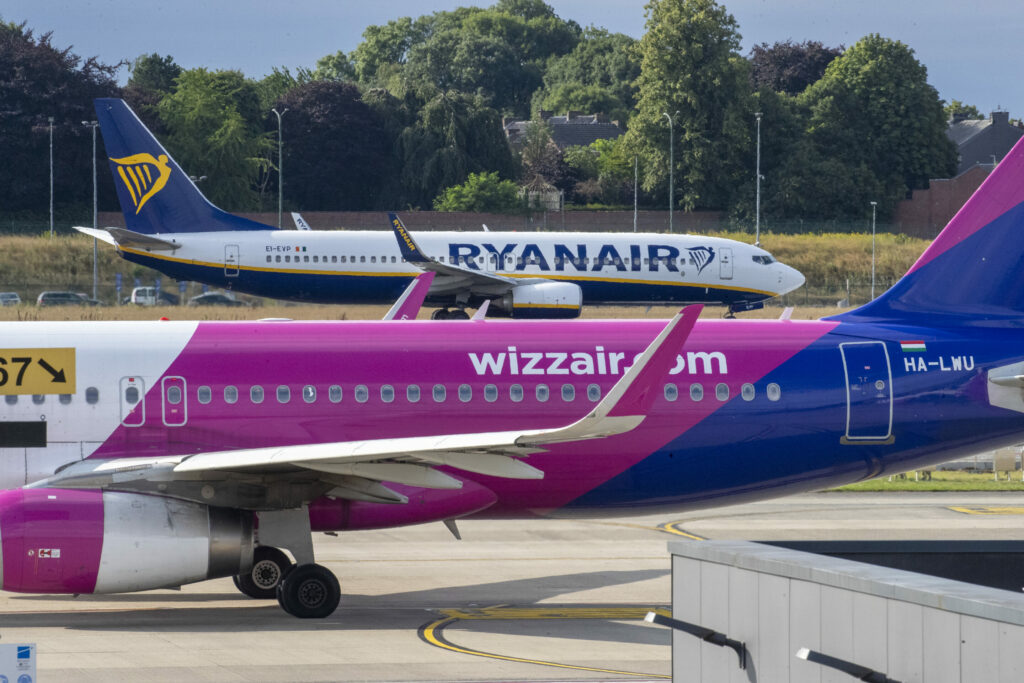Low-cost airlines are polluting more than ever, with Europe's biggest airline Ryanair emitting 14.9 million metric tonnes released in 2023, making it the most polluting airline for the third consecutive year.
Also high on the list was budget airline Wizz Air, which in 2023 exceeded its 2019 pollution peak by 40%. Meanwhile, Lufthansa and British Airways were the second and third biggest polluters, but are still below their pre-Covid levels (14% and 27% lower, respectively).
The findings published on Friday in a study by European non-profit organisation Transport & Environment (T&E). "Ryanair’s emissions are equivalent to those of seven million petrol cars in a year," the report highlighted.
'Unsustainable growth'
In 2023, one in four flights in Europe was operated by one of the three main low-cost carriers: EasyJet, Ryanair and Wizz Air. In 2019, this was one in five.
"The low-cost business model is driving unsustainable growth in the sector. Clean technologies, such as sustainable aviation fuels, won’t be able to keep up with the growth of Ryanair, Wizz Air and others," warned Jo Dardenne, aviation director at T&E.
Legacy airlines and selected third-country carriers are still responsible for the bulk of total European aviation emissions (42.2%) because they fly long-haul.
In addition, a combination of the limited scope of the European carbon market, the EU Emissions Trading System (EU ETS), and the free allowances given to airlines meant that Air France and Lufthansa paid just 7 and 16%, respectively, of their emissions in 2023.
Without these exemptions, Air France would have paid €700 million for its CO2 emissions last year. In reality, it paid €46 million – €5 per tonne of CO2.

Credit: Transport & Environment
Analysts calculate that as much as "78% of aviation’s CO2 emissions weren’t priced last year." T&E points out that this does not include non-CO2 pollution, such as emissions of nitrous oxides (NOx), sulfur dioxide (SO2), water (H2O) – and particulate matter (soot).
At high altitudes, these emissions affect atmospheric physical and chemical properties. This results in an increase in greenhouse gases.
'Flying is far too cheap'
Dardenne argues that "flying is far too cheap" because airlines are paying far too little for their carbon emissions. "This absurd situation where a passenger pays more for their coffee at the airport than some airlines pay for their emissions must end," she said.
T&E stressed that the busiest routes in Europe are all intercontinental and therefore don't fall under the EU ETS. The second-busiest route was London-Amsterdam Schiphol, which had an average of over 43 flights per day last year. But a direct four-hour train can be taken instead. The study makes clear that prices need to be more comparable to compel passengers to take the train instead.
A one-way Eurostar ticket purchased 30 days in advance currently costs just over €100 but this can rise to over €200 depending on the time of travel. The alternative route by plane with EasyJet is often less than €100 and sometimes €70.

Credit: Transport & Environment
The study makes policy recommendations to address the imbalance. It calls to extend the EU and UK ETS to all extra-European flights. This would prevent most aviation emissions in Europe being excluded from any effective carbon pricing mechanism.
T&E also advocates taxes on kerosene, national measures to reduce growth in air traffic, and monitoring the non-CO2 effects of aviation. Commercial aviation today represents nearly 3% of greenhouse gas emissions worldwide. When taking into account the non-CO2 effect, it accounted for 5.1% of anthropic global warming between 2000 and 2018.

